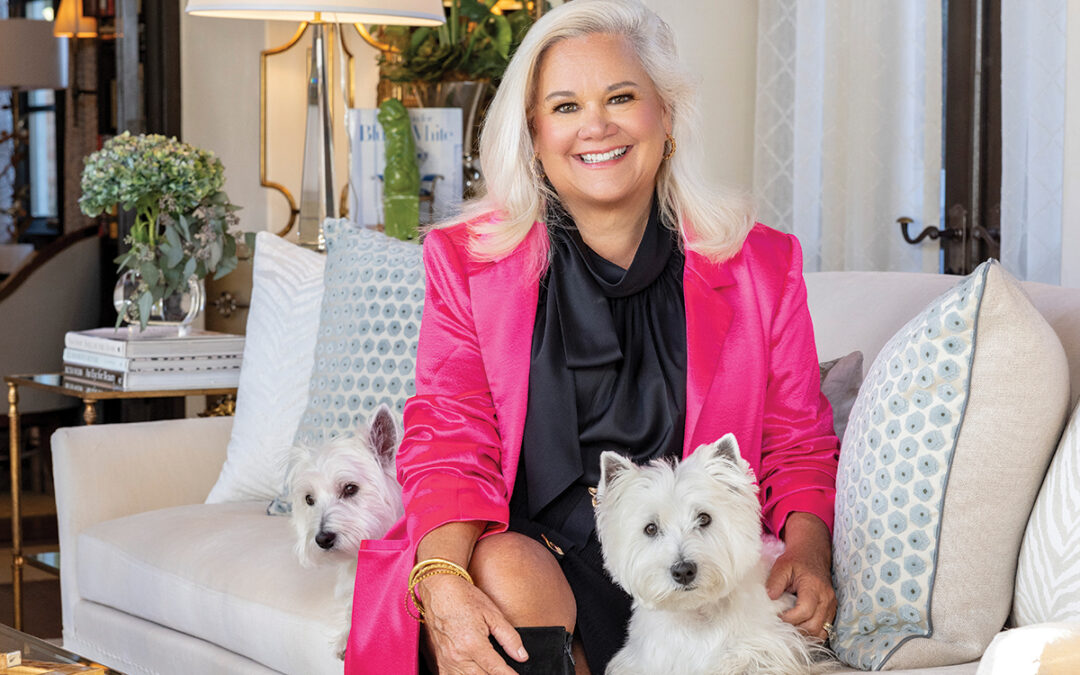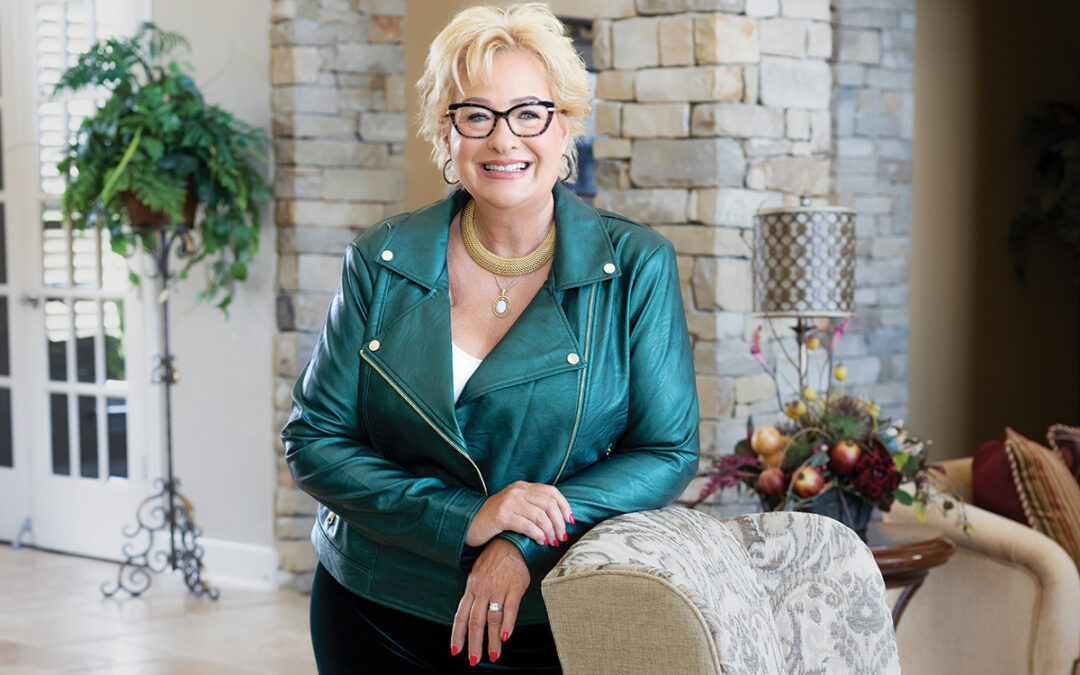As a hospital patient, you are not likely to have any dealings with the CEO unless you happen to be hospitalized at Methodist Hospital. There, top executive Gay Nord routinely drops in on patients and visiting family members to chat with them and get their feedback. What’s more, she hands them her business card and invites them to call her if they have any concerns, even after leaving the hospital. “It’s always a rewarding experience,” says the low-key Nord, who took the helm of the Methodist Hospital campus, which includes the Methodist Children’s Hospital, in October 2011. “It’s important to me as an executive to make sure that people have access to me. That’s what I am here for. We want to involve the patients and their families in their care. I am very focused on that.”
Some patients take her up on her offer. The day we talked, Nord was making plans to meet with such a patient and his wife who wanted to present suggestions for change from the patient’s point of view. Improving the service to patients is Nord’s top priority, but to accomplish that, she’s also been talking and listening to her staff, trying to get to know every single person, which can be a challenge in a place with more than 3,000 employees. In addition, she makes personal visits to doctors’ offices to consult with them, as well. The goal is to create “a comfortable, cohesive environment” for all. This has been her management style since she started her career in health care administration. According to the press release issued at the time of her hiring, in her previous position as CEO of Overland Park Regional Medical Center in Kansas, Nord made “noticeable improvements” in patient, employee and physician satisfaction as well as in quality-of-care indicators, especially in the areas of heart attacks, pneumonia and surgical care. During that same time, Overland Park saw its revenues rise, as well as its market share in services such as neonatology, neurosciences and cardiovascular care. A few years earlier, she presided over the Kingwood Medical Center in Houston when it was named one of the Best Places to Work by the Houston Business Journal. “I am very proud of that, and my goal is to achieve the same here,” she says.
What appealed to her about her present job was, first, the solid reputation of San Antonio’s Methodist Hospital and, second, the fact that it was in Texas, her native state. “The depth of services that this hospital had was well known – in heart transplants, for instance, bone marrow transplantation, open heart surgery for both children and adults, and a whole array of services that you don’t often see at general hospitals,” she explains. Founded in 1963 with 150 beds, Methodist Hospital was the first such facility to open in the now burgeoning South Texas Medical Center. Today, it’s the largest hospital in South Texas, consisting of two entities, the adult hospital with 755 beds and the children’s unit with 120, both overseen by Nord. Owned by a 50-50 partnership between Methodist Healthcare Ministries and the Hospital Corporation of America (HCA), the flagship institution and the entire Methodist Healthcare System continue to abide by the time-honored slogan of “Serving Humanity to Honor God,” notes Nord. Eight hundred doctors specializing in everything from gynecology and orthopedics to oncology and emergency medicine are actively affiliated with the Medical Center campus. Many of the physicians are involved in research projects as well, such as the recently launched national clinical trials in using stem cell therapy to treat heart disease.
Since her arrival, patient satisfaction has gone up substantially, now surpassing the national average, Nord points out before jokingly adding, “Not that I look at it closely all the time!” For three years in a row, 2009-2011, Methodist was ranked No. 1 among hospitals in San Antonio in the Express-News Readers’ Choice survey. While for-profit hospitals are often criticized for being too bottom-line oriented, Nord feels that her institution, with its dual ownership, enjoys the best of the for- and non-profit worlds. “But every business has to be cost-effective and efficient,” she observes. “That’s not necessarily detrimental to patient care. In fact, a high-performance organization is also a profitable one. If we do a good job in taking care of patients, everything else will fall into place.”
She grew up around hospitals
A Houston native, Nord grew up around hospitals because of her mother’s career as a nurse and later as a hospital administrator. Mom wanted her to study nursing, too, but the daughter realized at some point that she “wasn’t cut out to be a nurse.” The people she admired were the hospital executives. In college she majored in business administration and went on to earn a master’s in health care administration from Texas Woman’s University in Houston. Her mother also played Cupid in arranging a meeting between Gay and her future husband, Stan Nord, who is now also employed by the Methodist Healthcare System. “Mother and Stan worked in the same place,” explains Nord. “She was disappointed, however, because we didn’t hit it off at all at first. So we became just friends. It took five years before we got married, so Mom was right after all.” Now married 21 years, the couple do not have children, but Nord has “practically adopted” her brother’s two daughters. Through a happy coincidence, her brother got a job in San Antonio at about the same time she was applying for her current position, resulting in the siblings living in the same city again. Moreover, after her mother suffered serious health problems last year, she, too, moved here, together with her own mother. Finally Stan’s mother did the same. With her entire family around, Nord couldn’t be happier to be in San Antonio.
Mom has influenced her choices in yet another way. After watching her mother struggle with cardiovascular issues since an early age, the daughter decided to become a vegetarian more than 20 years ago and to exercise regularly. Both she and her husband are active cyclists, and she also keeps in shape by jogging and lifting weights. We are having this conversation in her fourth-floor office in the John Hornbeack Building, right in the middle of the Medical Center. It’s a bright, inviting room, made cozier by the presence of family photos. But the CEO spends relatively little time here. Her favorite place to be is on the hospital floor. As our conversation eventually circles back to work issues, she talks about a master plan to modernize and expand the facility. She would like to create a new look so that patients feel more like they’re in a hotel than in a health care institution – a more serene, attractive environment, probably with private rooms only. Asked how Obamacare may impact her business, Nord sort of shrugs. “I wish I could give you a good answer,” she replies. “Our challenge, for the entire (health care) industry, is to understand what the impact of the reform will be. Reimbursement from governmental entities will continue to be a challenge, I am sure. At the end of the day, someone has to pay. I think the system we have can be improved, but we must be thoughtful about drastic change. As hospitals, we must have a voice in the process of rolling out that change.”
For now she concentrates on the job at hand, from which she draws immense satisfaction: “For me the most important thing is to know that we affect people’s lives positively, that we change lives through what we do. I think about that on a daily basis. When I stop thinking that, I need to quit what I am doing.”









0 Comments